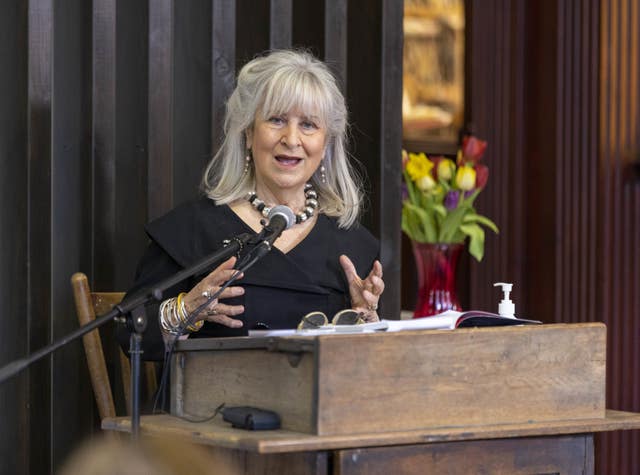Russian troops have ‘tacit permission’ to use rape as a weapon, says lawyer
A growing body of evidence is being gathered in the hopes of prosecuting Russian war crimes in Ukraine.

A top human rights lawyer in charge of gathering evidence to prosecute Russia for war crimes has said troops have “tacit permission” to rape civilians.
Baroness Kennedy of The Shaws, who is part of a legal taskforce helping to build war crimes cases in Ukraine, said evidence so far shows “serious offences of a grievous kind” have been committed by Russian troops against citizens.
Speaking to Sky’s Sophy Ridge on Sunday programme, she said: “One of the things is that a change has taken place internationally in the recognition of rape as a weapon of war and what that means is not that an instruction is given from the top to go out there and rape citizens, women and girls and anybody else, but it’s about the sort of tacit permission that’s given.

“(It’s) the way in which no-one is brought to book or called into line or disciplined and so that gives an immunity to soldiers on the ground they know that this is permissible.
“So what we have heard, and evidence is being gathered, is that serious offences of a grievous kind have been committed against citizens, against women and girls and that’s a new thing, in recognition and in investigating and in making sure that it properly reported.”
Reports of rape adds to a growing body of evidence of war crimes in the war-torn country.
The Metropolitan Police’s War Crimes Team, a unit within its counter-terrorism command (CTC), said it had already received around 50 referrals from people with a link to the UK, including those who have directly fled the conflict in the last two months since Russia began invading.
Baroness Kennedy said: “There are many crimes, we’ve witnessed them on our news: bombing residential areas, bombing hospitals and orphanages, the business of bombing the theatre where it was quite clear that citizens, civilians, were in hiding and the word children was plastered on the ground so any aerial bombardment could see what they were dealing with and yet they bombed that place to smithereens, those are crimes.”
However, she added that bringing prosecutions will be “very difficult” as Russia or China could, in the United Nations, veto a move to put a case before the International Court of Justice, so lawyers may have to explore alternatives.
The International Criminal Court has “already embarked upon an investigation”, she said.
When asked about the possibility of prosecuting Russian president Vladimir Putin himself, she said: “That is always more difficult until you have victory by Ukraine and the aftermath of that, it’s very difficult to bring leaders to justice.”
“I think we’re looking carefully at what the steps would have to be but we’re long way from that.”
Foreign Secretary Liz Truss announced sweeping sanctions against Russia in response to reports of “atrocities”.
She said at the time: “Together with our allies, we are showing the Russian elite that they cannot wash their hands of the atrocities committed on Putin’s orders. We will not rest until Ukraine prevails.”





